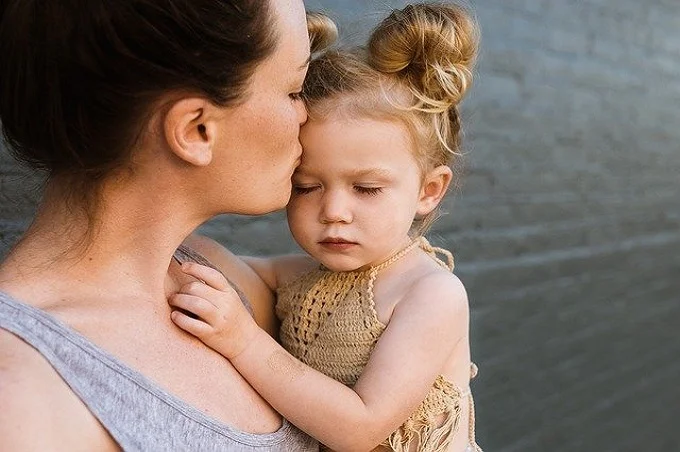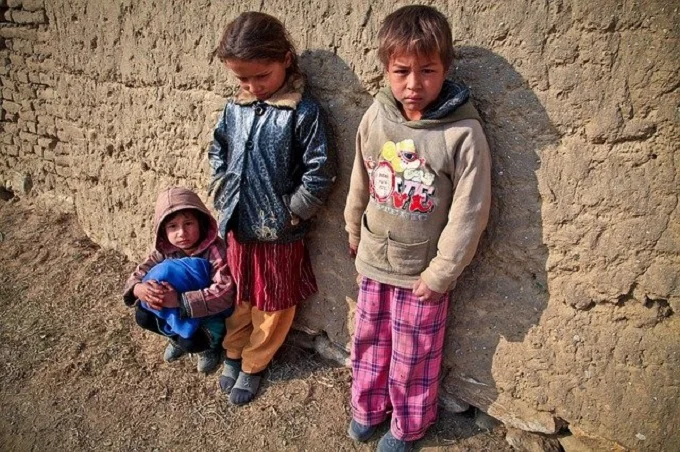6 myths about childhood depression that parents should not believe

Children of all ages, even the youngest, may face depression. This is called pediatric depression, and about 3% of children between the ages of 3 and 17 experience it. And depression is especially common in adolescents. It can be difficult to understand how serious a child’s negative emotions are. In addition, there are 6 common myths about pediatric depression, and we will tell you about them.
1. Crying and irritability are symptoms of depression in children

Children don’t always have the skills to express what’s on their minds. They can’t tell you exactly how they feel.
To find out if a child has signs of depression, you need to pay attention not only to crying or irritability. They may well turn out to be unable to cope with emotions or ways of manipulating a child in relation to parents. To get the latest stories, install our app here
In children, depression can be expressed in bodily manifestations: fatigue, unexplained pain, slowness. As well as feelings of guilt and constant apologies or the desire to isolate themselves from parents and friends. A child may lose interest in previously favourite activities and toys, be restless or, on the contrary, apathetic.
Another sign of childhood depression is changing eating habits and sleep patterns.
Depression can occur in both quiet and very sociable children. Some children actively communicate to distract themselves from isolated depression. The only thing they have in common is that they tend to feel lonely even when surrounded by friends.
2. Depression will pass with age
When adults deal with depression, they turn to a therapist to get help. This condition does not go away by itself without proper treatment.
Chronic sadness in children also does not go away with time if you do not find out its causes and do not help the child. Undiagnosed depression can cause tension in the relationship between parents and children. And some children, especially in adolescence, may start experimenting with alcohol or taking over-the-counter medications to cope with depression independently. To get the latest stories, install our app here
Therefore, you should not hope for a miracle and ignore the alarm bells associated with the behaviour of the child, which we described above.
3. Talking to a child about sadness will only make the situation worse

There is a myth that if we talk to a child about sadness, we only worsen his condition. But in fact, in such conversations, we can find its causes, support the child or help him deal with his feelings.
For example, to tell him what they are called to be easier for him to identify them and talk about them. And such conversations show that children are not alone in their problems, and we are ready to lend them a helping hand in difficult times.
The main thing is to refuse criticism, condemnation or attempts to tell the child that he is wrong in conversations about his condition. Also, you can not put ultimatums or say that his feelings are not justified by anything. This really can only aggravate the situation with his depression.
Just accept the pain and sadness that the child is experiencing, even if it seems fictional or irrational, and express your willingness to help him. And if the child refuses to talk to you about what he is experiencing, you can visit a psychotherapist yourself, who will tell you how to push the child to such a conversation or consent to therapy.
4. It is impossible to conduct psychotherapy with a child since he is still small
For the treatment of mild depression, there is conversational therapy, which is conducted at a session with a psychologist. It is effective enough to cope with depression without additional medications. To get the latest stories, install our app here
And for kids with a depressed state, the format of play therapy with a psychologist is suitable. It is not uncommon for family therapy, in which a child and his parents participate, to bring good results in the fight against depressive states.
Conversational therapy will strengthen the child’s cognitive abilities, reformulate thoughts and feelings more positively, and create active and healthy behavioural expression.
Children with severe depression or difficulties in everyday life are prescribed medications to increase mood and energy levels. Those with recurrent depression may benefit greatly from antidepressants designed to be taken at their age.
5. Depression is a normal part of growing up

There is a myth that teenage depression is quite normal because we experience intense feelings and a lot of stress associated with changes in the body and growing up.
The US National Institute of Mental Health reports that up to 8% of adolescents experience clinically confirmed depression. In some adolescents, a depressive state can lead to eating disorders, addiction to bad habits, and self-harm or suicidal thoughts. To get the latest stories, install our app here
That is why parents need to learn to distinguish between typical teenage moodiness and behaviour that may indicate depression. Therefore, if the sadness of a teenager is long enough, it is worth talking to him about it and seeking help from a specialist.
6. Depressed children can’t live fulfilling lives
If the child receives the necessary support, he can live a fulfilling life when treated. Yes, emotions are reflected in his quality or desire to do something. But the earlier the child receives treatment, the faster his habitual way of life normalizes.




